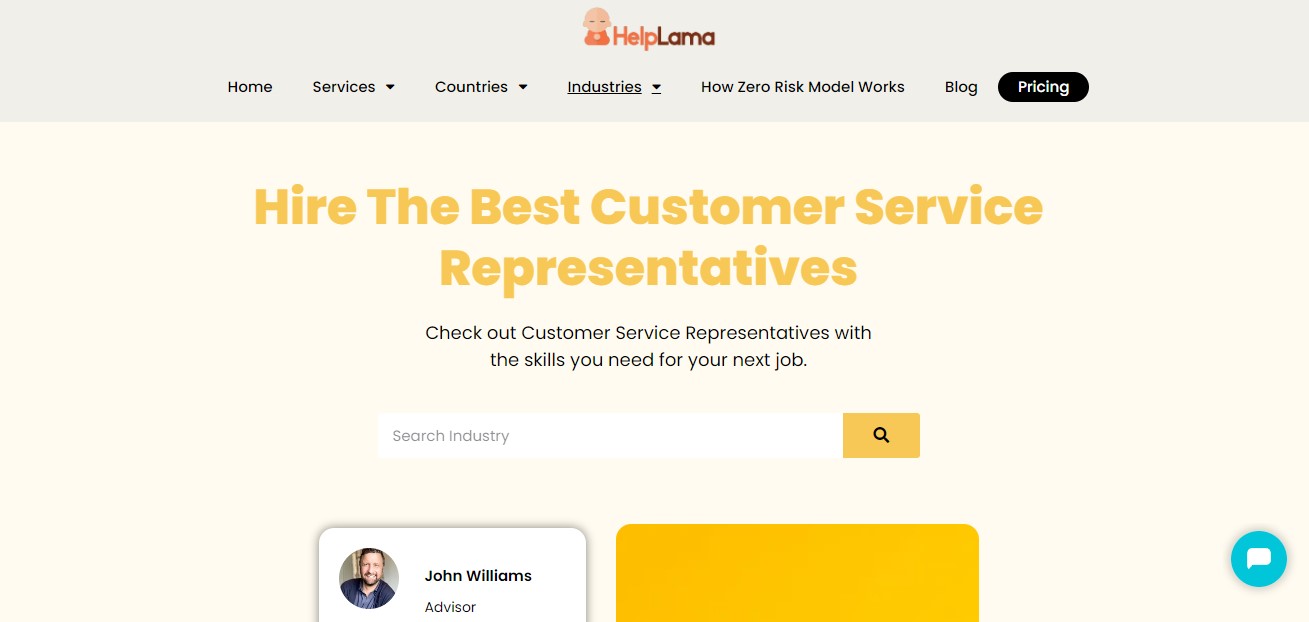When considering outsourcing, what should firms be sure to avoid? In the intricate web of business strategies, this question takes center stage.
In fact, 70% of companies reported cost savings as a primary factor for choosing to outsource.
Today, as companies explore the option of outsourcing to enhance efficiency and cut costs, steering clear of potential pitfalls is paramount.
In this article, we unravel the essential factors that firms must avoid to ensure their outsourcing endeavors thrive amidst the challenges of the modern marketplace.
Join us as we dissect the crucial missteps that can make or break outsourcing success.
7 outsourcing mistakes to avoid
1. Not knowing what to outsource and lacking clear objectives
Embarking on an outsourcing journey demands meticulous planning. Sadly, many businesses overlook this pivotal phase, leading to substantial hurdles in the future.
To ensure a smooth outsourcing experience, follow these structured steps:
- Define Your Scope: Begin by identifying the business functions you intend to outsource. A precise understanding of your requirements forms the basis of a successful outsourcing partnership.
- Set Clear Goals and Objectives: Establish well-defined goals, objectives, and expectations right from the start. This clarity is vital for aligning both parties and creating a shared vision for the collaboration.
- Outline Deliverables: Specify the outcomes you expect from the outsourcing arrangement. Clearly defined deliverables serve as benchmarks for measuring progress and success.
- Establish Performance Metrics: Develop measurable performance metrics to track the effectiveness of the outsourcing partnership. These metrics provide tangible data for evaluating the success of the collaboration.
- Proactive Communication: Encourage open and transparent communication channels. Regular discussions and updates ensure that both parties stay informed, minimizing the risk of misunderstandings.
- Regular Evaluation and Adjustment: Periodically assess the progress against the established goals and performance metrics. Be willing to adapt and make necessary adjustments to keep the collaboration on track.
2. Ignoring cultural differences
Various cultural backgrounds can significantly impact the results of an outsourcing collaboration. Ignoring these disparities may result in misinterpretations, disputes, and breakdowns in communication.
Therefore, after selecting an outsourcing partner, it’s crucial to proactively discuss aspects such as your culture, communication preferences, work ethos, and time zones.
Allocate time for them to comprehend and value the subtleties of your culture, enhancing the potential for successful collaboration.
3. Neglecting contract details
Have you heard the saying ‘Never agree to a contract without understanding its terms’?
The outsourcing contract is a pivotal document, specifying the terms and conditions governing the entire collaboration.
Think of it as a navigational guide steering both parties toward a successful outsourcing journey.
Overlooking vital elements like service-level agreements, pricing models, intellectual property rights, and termination clauses can lead to unexpected expenses and complications in the future.
To sidestep these issues from the start, it’s crucial to grasp these details thoroughly.

4. Poor project management
When delegating specific business tasks, having confidence in your team’s abilities is crucial.
However, this trust should be complemented by active engagement and vigilance to maintain a successful partnership. Here’s why:
- Trusting Expertise: Outsourcing implies confidence in the expertise of the hired team. Entrusting them with tasks suggests faith in their ability to perform efficiently and effectively.
- Active Involvement: Avoid complacency by staying actively involved. Regularly monitor progress, review completed tasks, and provide constructive feedback. This involvement ensures that the work aligns with your expectations and standards.
- Communication Is Key: Maintain open lines of communication. If updates or deliverables are lacking, it’s a red flag. Effective communication bridges gaps and keeps the outsourcing process on track.
- Proactive Problem-Solving: Identify issues promptly. If there’s a deviation from the planned course or if expectations aren’t met, address the problems proactively. Timely intervention can prevent minor issues from snowballing into major complications.
5. Unrealistic cost expectations
In the realm of outsourcing decisions, the desire to cut costs often takes precedence. However, fixating solely on cost without evaluating the quality of work can lead to detrimental consequences.
Although cost efficiency holds significance, it’s equally vital to assess the quality of output derived from the partnership. Unrealistic cost expectations may yield subpar results and dissatisfaction.
The key lies in finding the optimal balance between cost and quality. Seek that sweet spot where both elements harmonize.
Additionally, consider the enduring value your outsourcing partner can contribute to your organization. Balance, after all, is the linchpin of a successful outsourcing strategy.
6. Not evaluating your results
As a business owner, your assessment of the service and results your business receives holds significant weight.
Pose essential questions: Is the service meeting your anticipated level? Are your objectives being met?
These inquiries aid in determining whether the service delivered aligns with your expectations or falls short.
Should you find the service lacking, it serves as a clear signal that adjustments might be necessary.
Do not hesitate to engage in candid discussions with your outsourcing partner. Share your concerns, identify areas needing enhancement, and collaborate on finding practical solutions.
Rely on your instincts and let your evaluation steer you towards well-informed decisions. Trusting your judgment ensures that your outsourcing arrangements align with your business objectives and standards.
7. Neglecting relationship building
Considering outsourcing merely as a transactional deal, devoid of efforts to foster relationships, can impede collaboration and long-term prosperity. This approach may result in lost chances and less-than-ideal results.
Instead, envision it as planting seeds that will flourish into thriving partnerships. Devoting time and energy to nurture relationships lays a sturdy groundwork for trust, mutual comprehension, and seamless communication.
These elements facilitate enhanced collaboration, adept problem-solving, and synchronization of goals and strategies.
It’s akin to infusing an additional layer of synergy into your business, enhancing its overall efficiency and effectiveness.

Choose Helplama for Outsourcing Customer Service
Looking for an outsourced customer service platform to boost your productivity? Look no further than Helplama.
With its easy-to-use interface and skilled team, Helplama lets you delegate tasks and focus on what matters most to your business.
Their team’s expertise and outstanding performance elevate your customer support quality.
Services Offered:
- Email Support
- Live Chat Support
- Live Call Answering Service
- Phone Support
- Telemarketing Support
- Phone Order Taking
- Data Entry Services
Industries Served:
- B2B Telemarketing
- E-commerce
- Technical Support
Key Features
- Round-the-Clock Support: Helplama provides 24/7 customer service, handling tasks like phone support, email, and chat support.
- Automated Email Communication: Boost your Net Promoter Score (NPS) with automated email notifications and alerts to your customers.
- Dedicated Agents: Helplama assigns agents trained specifically in your products and services. They work closely with your team to provide exceptional customer service.
- Performance Metrics: Regular reports on your customer service performance allow you to track the effectiveness of your outsourcing efforts.
- Additional Services: Helplama simplifies your business operations by managing tasks such as data entry and order processing.
Conclusion
In the world of business, outsourcing offers great possibilities. From what we’ve learned, it’s not just about saving money but making smart decisions.
Remember, outsourcing is like making a friend. It’s not just a one-time deal but a partnership. By focusing on building relationships based on trust and clear communication, businesses can thrive.
It’s also crucial to balance the cost with the quality of service. Companies such as Helplama showcase how outsourcing can enhance your operations. These specialists operate 24/7, utilizing advanced technology to contribute significantly to your business’s success.
In a nutshell, outsourcing should be seen as a helpful friend, not just a money-saving trick. With thoughtful choices and open communication, it can truly boost a business toward success.



